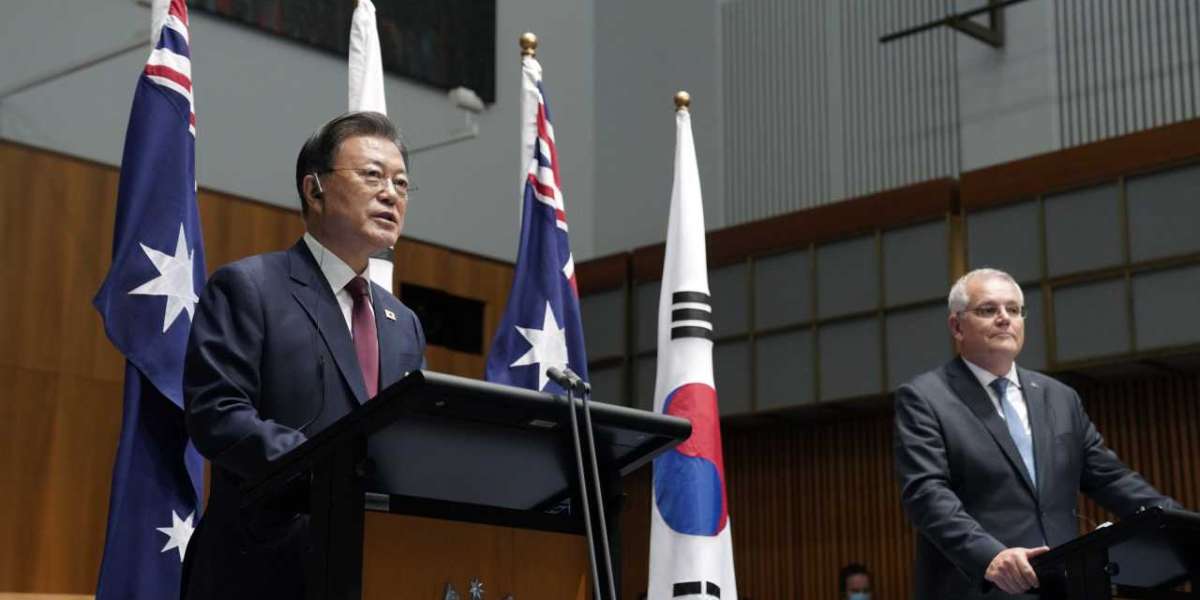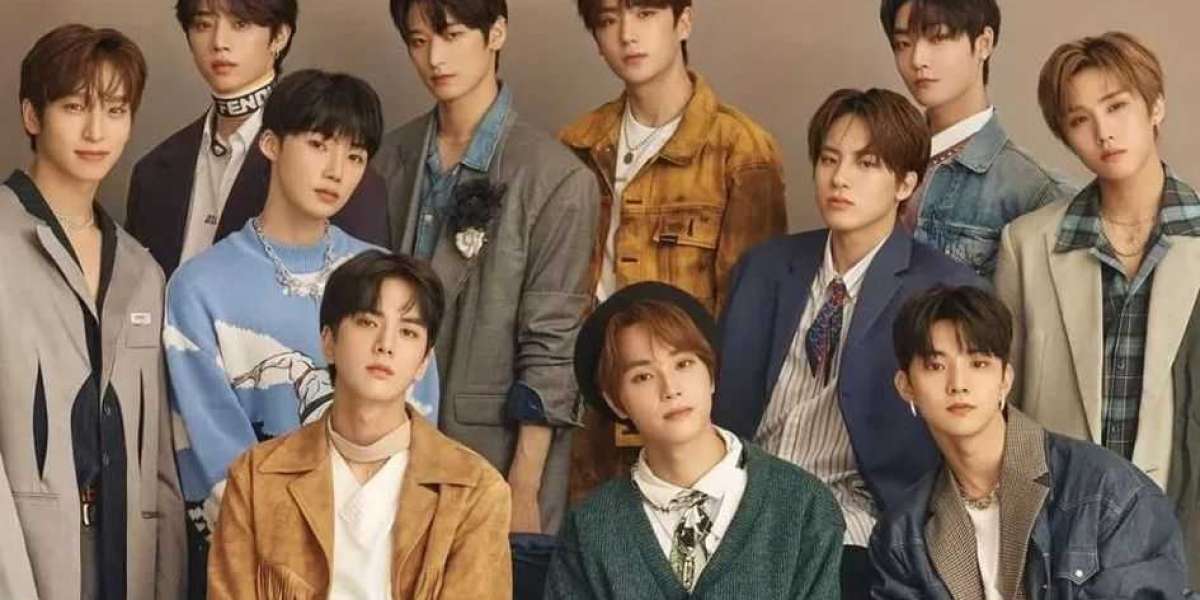During a joint news conference with Australian Prime Minister Scott Morrison on Monday, President Moon Jae-in stated that the Korean government is not planning a diplomatic boycott of the next year's Beijing Winter Olympics. Moon was in Australia on a state visit at the time of the statement.
A reporter inquired whether Moon's visit to Australia could send a negative signal to China at a time when Australia is embroiled in a diplomatic dispute with Beijing and has announced a diplomatic boycott of the Olympics. Moon responded that "we have received no recommendations to participate in (the boycott) from any country, including the United States, and the Korean government is not considering it."
According to Moon, "Australia has the right to decide on the AUKUS (United Kingdom-Australia-United States) tripartite relationship on its own behalf as a sovereign country, and South Korea recognizes and respects that choice."
The United Kingdom and Australia joined the United States in its diplomatic boycott of the Winter Olympics in Beijing last week.
He stated that Australia is attempting to promote peace and development in the Indo-Pacific area and does not wish to see regional tensions and disputes escalation. "In order to maintain regional peace, Korea will collaborate closely with Australia." "The state visit to Australia has absolutely nothing to do with (Korea's) stance on China," the official said.
The relationship with the United States is considered to be the cornerstone of diplomacy and security in South Korea, but connections with China are also highly vital economically, according to Moon. In order to achieve peace and stability on the Korean Peninsula, as well as the denuclearization of North Korea, China's positive efforts are essential.
He went on to say that Korea is attempting to preserve a cordial relationship with China while still strengthening its partnership with the United States.
To a query on the declaration of the end of the war with North Korea, Moon responded, "The key countries, namely the United States, China and North Korea, have all indicated their support in principle for the statement."
Nevertheless, because North Korea demands that the United States abandon its hostile policy toward the North as a precondition for conversation, it has not yet commenced. "We will make every effort to restart conversation between the two Koreas as well as between the United States and the North as soon as feasible," he continued.
President Moon did not elaborate on the plan to press for an end-of-war declaration at a time when the Joe Biden administration was imposing its first sanctions against North Korea. President Moon did not remark on the idea in depth.
According to him, "a consensus among related countries must be reached in order for the end-of-war declaration to be issued." He went on to say that a consensus should also be reached on the processes that must be undertaken in order to denuclearize the Korean Peninsula and establish a peace system on the Korean Peninsula following the end-of-war declaration.
According to Morrison, "it must be a tough undertaking that many people have attempted and failed to do in the past."
This is why I applaud President Moon's dedication to this issue, and the fact that he is continuing to move forward. He doesn't give up on his quest to find the path. And I believe it says volumes about his dedication to this cause, and we will continue to support his efforts in any way we can."
"Our ultimate goal has not changed. " "(It is) to guarantee that a mechanism can be established that will ultimately result in these concerns being handled," he explained. "However, that settlement cannot be achieved at the expense of unacceptable concessions. It must be delivered in a way that really improves stability while also increasing freedom, rather than attempting to lock in undesirable outcomes."
In celebration of their 60th anniversary of diplomatic relations, the two countries also announced that their ties had been raised to a Comprehensive Strategic Partnership. The two countries inked a memorandum of understanding for cooperation in the military sector and the production of defense equipment. They also agreed to export Korea's K-9 self-propelled howitzer to Australia, according to the agreement.
With the signing of the K-9 self-propelled howitzer project today, Moon stated that "we would deepen strategic defense cooperation with Australia." He went on to say that "we will extend security cooperation with Australia, encompassing military, defense and cyber sectors."
Along with that, they inked agreements to promote more collaboration in the hydrogen economy, key mineral supply chains, and carbon-neutral technology.
According to Moon, "we will broaden the scope of our collaboration to include eco-friendly fundamental technologies like as the hydrogen economy, solar energy systems, and carbon capture devices, and we will turn carbon neutrality into an opportunity to create new businesses and employment."


